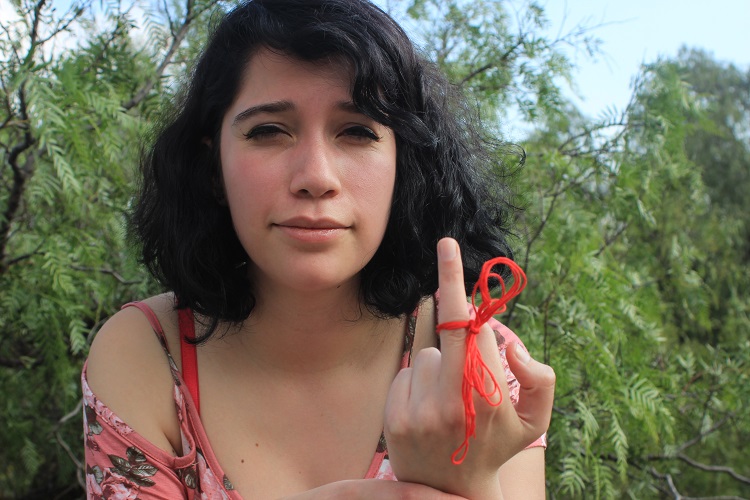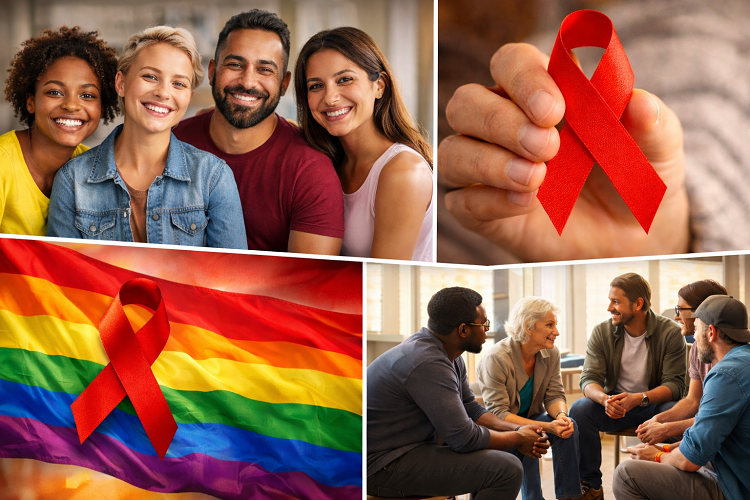For decades, conversations about HIV have been wrapped in stigma, fear, and misinformation. But today, a new generation of young women is stepping forward to change that narrative. These women are not defined by their diagnosis they are students, professionals, mothers, dreamers, and advocates who are proving that Living With HIV is just one part of their journey, not their identity.
In this post, we amplify their voices — stories of courage, resilience, and hope — that remind us that HIV doesn’t define who you are; your strength does.
Young Women Redefining HIV Awareness
Across the world, young women living with HIV are reclaiming their stories. They’re challenging stereotypes, speaking up about their experiences, and helping others understand that HIV is a manageable condition, not a life sentence.
A New Generation Speaks Out
Twenty years ago, many people living with HIV faced silence, discrimination, and isolation. Today, thanks to medical advances and global awareness, HIV-positive women are rewriting their stories. With consistent treatment and care, they can live long, healthy lives — and they’re using their voices to show others that HIV is not the end of life, but a new beginning of strength.
From Shame to Strength
Social media and online communities have become powerful tools for young women to share their truths. Platforms like Instagram, YouTube, and TikTok are filled with advocates educating others on safe sex, testing, and emotional well-being. Their openness breaks down barriers and helps others feel less alone. By sharing their stories publicly, they transform shame into strength — proving that transparency can heal.
Understanding HIV Beyond the Diagnosis
To humanize HIV, it’s important to separate fact from fear. HIV (Human Immunodeficiency Virus) attacks the immune system, but with proper medication — known as antiretroviral therapy (ART) — the virus can be controlled to the point where it becomes undetectable. That means it cannot be transmitted to others (known as U=U — Undetectable = Untransmittable).
Living a Full Life
Modern medicine ensures that young women living with HIV can work, study, have relationships, and even give birth to HIV-negative children. The key lies in awareness, access to healthcare, and a supportive environment. The stigma surrounding HIV often does more harm than the virus itself — which is why these stories are vital for creating understanding and acceptance.
Mental Health Matters
Living with HIV can come with emotional challenges — fear, anxiety, and sometimes self-doubt. But many young women have found healing through therapy, support groups, and community organizations that promote emotional well-being. They remind us that mental health care is just as important as medical treatment.
Fighting HIV Stigma Together
Despite progress, HIV stigma continues to harm lives. Many people still associate HIV with moral judgment or misinformation. Young women face added layers of stigma due to gender inequality, cultural pressures, and fear of rejection in relationships.
Why Stigma Still Exists
Stigma often stems from lack of awareness. Many people don’t realize that HIV is now a manageable health condition. The outdated idea that it defines a person’s worth or lifestyle is simply false. Educating communities is essential to end discrimination and empower those living with HIV to live openly and confidently.
How We Can All Help
- Normalize conversation about sexual health and testing.
- Support awareness campaigns that highlight real-life stories.
- Avoid judgmental language when talking about HIV or people living with it.
- Encourage empathy and understanding — because HIV doesn’t discriminate, and neither should we.
When we treat people with compassion instead of fear, we create a world where everyone can thrive — regardless of their status.
The Power of Community and Connection
One of the strongest messages shared by young women living with HIV is the importance of community. No one should face HIV alone. Whether it’s through online networks, local support groups, or global movements, connection builds resilience.
Finding Support and Sisterhood
Community organizations like UNAIDS, The Well Project, and local HIV youth networks provide resources, education, and spaces for women to connect and heal together. These platforms remind everyone that you are never alone — there’s always someone who understands what you’re going through.
Love and Relationships After Diagnosis
Many young women fear rejection when disclosing their status, but open and honest communication can build stronger, more understanding relationships. With education about U=U, more partners realize that love and intimacy are possible — and safe. Trust and transparency can turn fear into closeness.
Hope for the Future: Redefining HIV for the Next Generation
Every time a young woman shares her truth, she helps dismantle decades of stigma. Their voices create ripples of change that influence how society views HIV — not as a shameful secret, but as a human reality that deserves compassion and respect.
A Message of Empowerment
Young women living with HIV are leaders in their own right. They are using their platforms to promote testing, education, and empathy. They’re redefining what it means to live healthy, love deeply, and dream freely. Their stories prove that HIV doesn’t define you — your courage, kindness, and resilience do.
Changing the Narrative Together
We all have a role to play in breaking down barriers and promoting understanding. Whether you’re living with HIV or supporting someone who is, remember: your story matters. Every conversation, every act of kindness, and every shared truth helps make the world a more compassionate place.
Final Thoughts
“HIV Doesn’t Define Us” is far more than a statement — it’s a declaration of self-worth, resilience, and hope. It’s a call to action for every woman who has ever been made to feel small because of her diagnosis. It’s a movement that reminds us that identity is shaped by courage, not circumstance; by how we rise, not by what tries to break us.
For too long, society has allowed HIV stigma to silence countless women around the world. The shame and judgment that surround this virus have created barriers to treatment, love, and acceptance. But today, a new generation is standing up — boldly, unapologetically — to say, we are not our diagnosis. We are women, sisters, mothers, friends, leaders, and lovers. We are vibrant, ambitious, and unafraid to live fully. HIV may be part of our journey, but it does not determine our destination.




